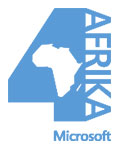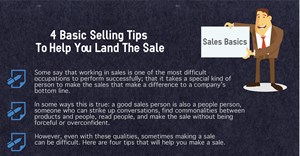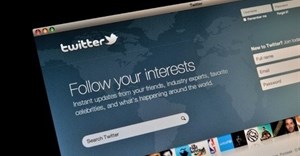Subscribe & Follow
Advertise your job vacancies
Trending





 Vicinity Media: How we use DOOH in our retail solutionSharné Daniels, Chanté Naidoo & Olav Westphal
Vicinity Media: How we use DOOH in our retail solutionSharné Daniels, Chanté Naidoo & Olav Westphal
Jobs
- Compliance Officer Cape Town
- Risk Specialist - Financial Services Cape Town
- Senior Accountant - Saica Cape Town
- Pet Insurance Promoter Western Cape
- Junior Capital Analyst Midrand
- Costing Clerk Shelley Beach
- Business Development Manager Mbombela
- Sales and Client Care Consultants George
- Life New Business Sales Consultant George
- Sales and Service Consultants George
Understanding essential business financials
As a business owner, it is essential that you understand certain accounting and financial terms and forecasts in order to properly strategise and make your business a success. Without this knowledge, long-term financial strategies and current cost structures can suffer, damaging the business in the future, while confidence in your business amongst your investors and team can wane.

Image: www.freedigitalphotos.net
The following set of definitions will aid you in the basic terms you will need to keep your business running smoothly.
Forecasts
- Cash flow forecast: An indication of how much money you expect to receive and how much money will be going out of your business, including all future income and expenses over the coming 12 months.
- Cost of goods sold (COGS) forecast: This forecast determines how much it costs you to produce your physical product or stock it, including wholesale costs, transport costs, insurance costs, sales commissions, and labour costs. In other words, it is the cost of the goods you are selling. The cost depends on the sales forecast.
- Expenses forecast: This is a projection of how much you expect your operating expenses to cost over a certain period. In other words, it tells you what the costs of running your business will be and includes the likes of salaries, bank charges and interest, advertising, rental, telephone, transport operation, Internet access, and other expenses.
- Financial forecast: a plan or budget for your business, estimating your expected income and expenses over a period of time.
- Sales forecast: An estimate of your sales for a specific period using a projection of how much you can sell and how much you will charge, which is used to determine the business' activity levels. These levels will aid in arranging all other forecasts and budgets.
Financial Terms
- Assets: The items with monetary value that a business owns, such as property, inventory, office furniture, or vehicles. See also Liabilities.
- Audit: A process that sees auditors examine a business' financial books.
- Balance sheet: A statement of your assets, liabilities, and net equity at a certain point in time. See also Profit and Loss statement.
- Bottom line: The overall profit of a company, or its net earnings. It is in essence a reference to the location of the amount on your company's income statement, which is right at the bottom.
- Break-even point: The first target for any start-up business, this is the point when a business' sales exceed its expenses, allowing a profit to be recorded.
- Business credit score: Businesses have credit scores just as individuals do. A business credit score is an indication of how likely the business is to pay its debts.
- Capital: This is also known as equity and is the result of liabilities being deducted from assets. See also Equity, Debt.
- Capital expenditure: Any items your business has purchased that currently or will benefit it, such as vehicles or property.
- Capital Gains Tax: Tax incurred when a business sells an asset or property.
- Capitalisation: Also known as invested capital, capitalisation refers to the total of the business' earnings, stock, and long-term debt.
- Cash flow: All the money that comes into and goes out of your business.
- Collateral: This term refers to property that someone borrowing money from a financial services provider promises to the lender in case they default on a loan.
- Concentration: The amount of business you do with a certain client. Your business will be over-concentrated if it is doing business with only a few clients. Investors will be more impressed if you have a low concentration.
- Debt: The amounts of money the company owes to creditors, such as banks
- Depreciation: The declining value of assets over time.
- Equity: This is the money invested into the company in the form of investments from investors or personal assets. See Debt, Capital
- Fixed cost: A cost that experiences no change despite rising or falling goods or services production. This includes rentals, salaries, and some utility bills. See Variable Costs.
- Fiscal year: This is a period of 12 months that is not dependent on a calendar year, as long as the months are consecutive. It is designated by the year it ended. The FY is used by businesses to determine the state of their affairs, and would include consideration of annual salary increases, for example.
- Gross income: This is the business' entire income before any deductions, allowances, or exemptions are subtracted.
- Gross margin: This is the percent of a company's total sales revenue after deducting the cost of goods or services production.
?
- Gross profit: This refers to how much the business is making from selling a product versus how much it costs to produce/supply it.
- Leverage: This refers to the money you borrowed from creditors to run your business and is the amount of credit you can use to finance the assets in your business. For example, if your debt is higher than your equity, you will be considered a risky investment, or 'highly leveraged'.
- Liabilities: Anything a business owes in debt. See also Assets.
- Net Cash Position = Income/Receipts - Expenses/Payments
- Prime rate: The interest rate banks decide upon to establish lending rates. Small business loans are affected by this prime interest rate as it can increase or decrease existing loans with variable interest rates, as well as the interest rate of new fixed-rate loans.
- Profit and Loss statement: A report on your business' income, profits, and expenses in a certain period. See also Balance Sheet.
- Refinancing: This means you are repaying an existing loan with a new one in order to obtain better interest rates or other improved terms.
- Remuneration: Money a business has paid to an employee in the form of a salary, leave pay, allowances, bonuses, etc
- Variable cost: A cost that varies depending on production or other aspects. This would include telephone usage, electricity bills, or transport costs. See also Fixed cost.
Source: Biz4Afrika

Biz4Afrika is a Microsoft small business community hub. Biz4Afrika is making it possible to get online for free, spread your customer net wider and bring in more sales. Small businesses can register, get their own personalised website, their own internet address, personalised email address, as well as offers from over 30 partners to help your business grow.
Go to: https://southafrica.biz4afrika.com/







